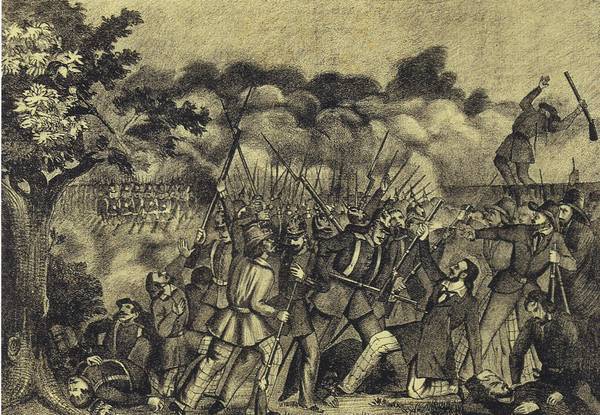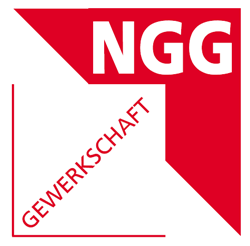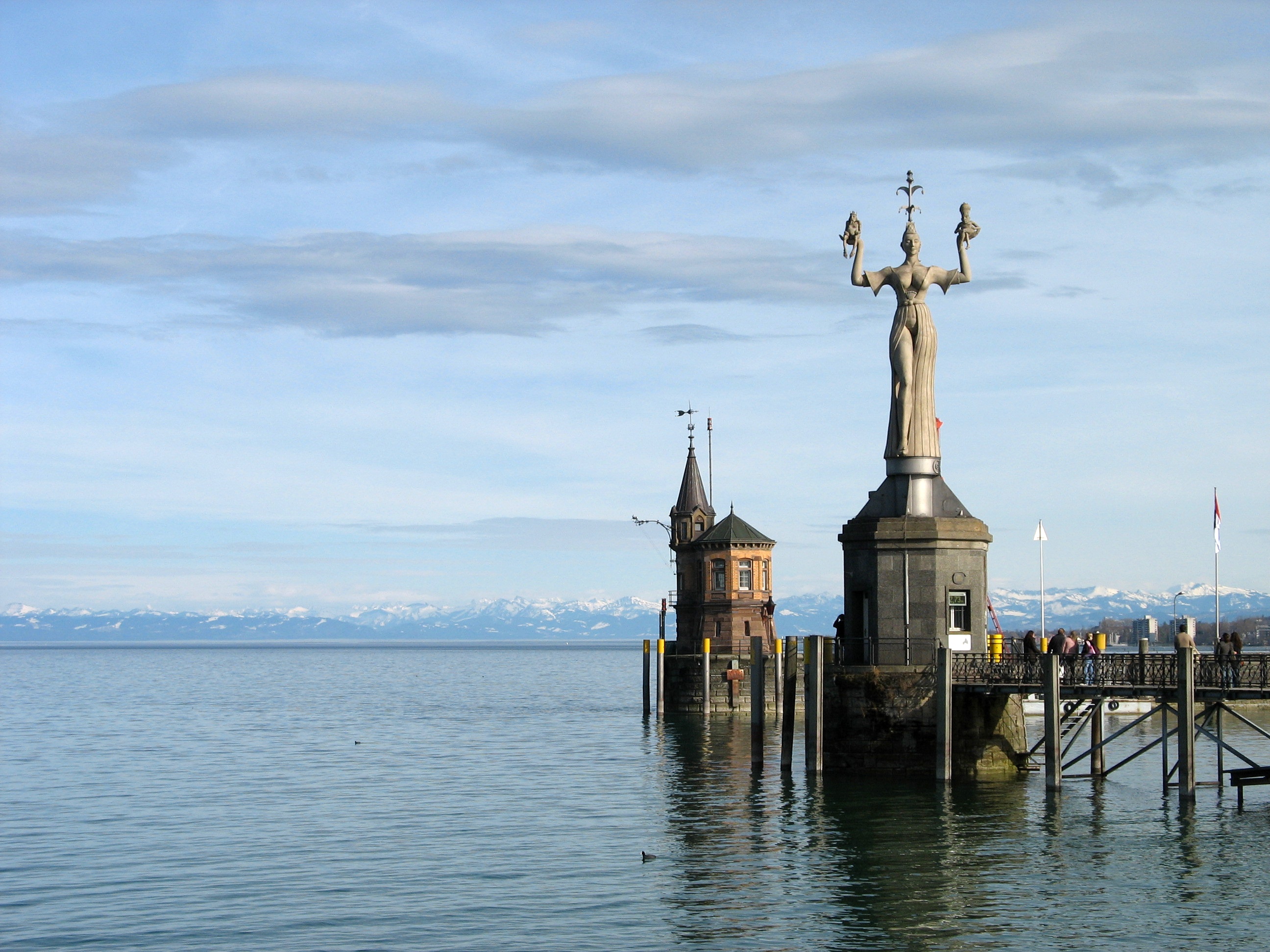|
Trade Unions In Germany
Trade unions in Germany have a history reaching back to the German revolution in 1848, and still play an important role in the German economy and society. The most important labor organization is the German Confederation of Trade Unions (', or ''DGB''), which is the umbrella association of eight single trade unions for individual economic sectors, representing more than 6 million people . The largest single trade union is the IG Metall, which organizes about 2.3 million members in metal (including automobile and machine building), electronics, steel, textile, wood and synthetics industries. In 2022, half of all German workers were covered by collective bargaining agreements. In Germany, unions and employer associations bargain at the industry-region level. These large-scale agreements have broad coverage and lead to considerable standardization in wages and employment conditions across the country. Some bargaining occurs at the firm level. Current Situation The German ... [...More Info...] [...Related Items...] OR: [Wikipedia] [Google] [Baidu] |
German Confederation Of Trade Unions
The German Trade Union Confederation (german: Deutscher Gewerkschaftsbund; DGB) is an umbrella organisation (sometimes known as a national trade union center) for eight German trade unions, in total representing more than 6 million people (31 December 2011). It was founded in Munich, 12 October 1949. The DGB coordinates joint demands and activities within the German trade union movement. It represents the member unions in contact with the government authorities, the political parties and the employers' organisations. However, the umbrella organisation is not directly involved in collective bargaining and does not conclude collective labour agreements. Union delegates elect committees for 9 districts, 66 regions and the federal centre. The organisation holds a federal congress every four years. This assembly sets the framework for trade union policies and elects five Federal Executives. Together with the presidents of the member unions they constitute the DGB's executive co ... [...More Info...] [...Related Items...] OR: [Wikipedia] [Google] [Baidu] |
Gewerkschaft Der Polizei
The Gewerkschaft der Polizei (GdP; en, Trade Union of the Police) is a trade union in Germany. It represents 181,000 police employees, and is one of eight industrial affiliations of the German Confederation of Trade Unions (DGB). The GdP is one of the three trade unions for police employees in Germany, the other two being the Deutsche Polizeigewerkschaft - affiliated with the German Civil Service Federation - and the Bund Deutscher Kriminalbeamter, which is exclusively for members of the ''Kriminalpolizei''. The Trade Union of the Police was founded on a federal level on 14 September 1950 in Hamburg. It emerged from the ''Interessengemeinschaft der Polizeibeamtenbunde'' (''Pool of Police Officer Federations''), which had existed in the British occupation zone and West Berlin to that point. It joined the German Confederation of Trade Unions on 1 April 1978. On a European level, the GdP was part of the European Confederation of Police (EuroCOP). The GdP resigned its EuroCOP Member ... [...More Info...] [...Related Items...] OR: [Wikipedia] [Google] [Baidu] |
Otto Von Bismarck
Otto, Prince of Bismarck, Count of Bismarck-Schönhausen, Duke of Lauenburg (, ; 1 April 1815 – 30 July 1898), born Otto Eduard Leopold von Bismarck, was a conservative German statesman and diplomat. From his origins in the upper class of Junker landowners, Bismarck rose rapidly in Prussian politics, and from 1862 to 1890 he was the Minister President of Prussia, minister president and List of foreign ministers of Prussia, foreign minister of Prussia. Before his rise to the Executive (government), executive, he was the Prussian ambassador to Russian Empire, Russia and Second French Empire, France and served in both houses of the Landtag of Prussia, Prussian Parliament. He masterminded the unification of Germany in 1871 and served as the first Chancellor of Germany#Under the Emperor (1871–1918), Chancellor of the German Empire until 1890, in which capacity he dominated European affairs. He had served as the chancellor of the North German Confederation from 1867 to 1871, alon ... [...More Info...] [...Related Items...] OR: [Wikipedia] [Google] [Baidu] |
German Revolutions Of 1848–1849
The German revolutions of 1848–1849 (), the opening phase of which was also called the March Revolution (), were initially part of the Revolutions of 1848 that broke out in many European countries. They were a series of loosely coordinated protests and rebellions in the states of the German Confederation, including the Austrian Empire. The revolutions, which stressed pan-Germanism, demonstrated popular discontent with the traditional, largely autocratic political structure of the thirty-nine independent states of the Confederation that inherited the German territory of the former Holy Roman Empire after its dismantlement as a result of the Napoleonic Wars. This process began in the mid 1840s. The middle-class elements were committed to liberal principles, while the working class sought radical improvements to their working and living conditions. As the middle class and working class components of the Revolution split, the conservative aristocracy defeated it. Liberals were for ... [...More Info...] [...Related Items...] OR: [Wikipedia] [Google] [Baidu] |
Gewerkschaft Deutscher Lokomotivführer
The ''Gewerkschaft Deutscher Lokomotivführer'' (GDL, engl.: ''German Train Drivers' Union'') is a German trade union that represents workers in train companies. It has a membership of 34,000. 2007 strike In August 2007 the GDL planned to strike after talks failed with Deutsche Bahn, the main German railway operator, over a range of demands from the union. A key disagreement was GDL's wish to represent its members in collective bargaining processes, independently of other unions representing staff in that job category. On 8 August 2007, the labour court in Nuremberg declared that a strike of affected long-distance and goods services would be illegal if carried out before 30 September, claiming it would affect the national economy too severely. On 2 November 2007, the labour court in Chemnitz overturned a previous judgement limiting strike action to short-haul routes. After the decision the GDL declared a three-day strike. It was the first national rail strike since 1992 an ... [...More Info...] [...Related Items...] OR: [Wikipedia] [Google] [Baidu] |
Freedom Of Association
Freedom of association encompasses both an individual's right to join or leave groups voluntarily, the right of the group to take collective action to pursue the interests of its members, and the right of an association to accept or decline membership based on certain criteria. It can be described as the right of a person coming together with other individuals to collectively express, promote, pursue and/or defend common interests. Freedom of association is both an individual right and a collective right, guaranteed by all modern and democratic legal systems, including the United States Bill of Rights, article 11 of the European Convention on Human Rights, section 2 of the Canadian Charter of Rights and Freedoms, and international law, including articles 20 and 23 of the Universal Declaration of Human Rights and article 22 of International Covenant on Civil and Political Rights. The Declaration on Fundamental Principles and Rights at Work by the International Labour Organizatio ... [...More Info...] [...Related Items...] OR: [Wikipedia] [Google] [Baidu] |
Weimar Constitution
The Constitution of the German Reich (german: Die Verfassung des Deutschen Reichs), usually known as the Weimar Constitution (''Weimarer Verfassung''), was the constitution that governed Germany during the Weimar Republic era (1919–1933). The constitution declared Germany to be a democratic parliamentary republic with a legislature elected under proportional representation. Universal suffrage was established, with a minimum voting age of 20. The constitution technically remained in effect throughout the Nazi era from 1933 to 1945, though practically it had been repealed by the Enabling Act of 1933 and thus its various provisions and protections went unenforced for the duration of Nazi rule. The constitution's title was the same as the Constitution of the German Empire that preceded it. The German state's official name was ''Deutsches Reich'' until the adoption of the 1949 Basic Law. Origin Following the end of World War I, a German National Assembly gathered in the town of ... [...More Info...] [...Related Items...] OR: [Wikipedia] [Google] [Baidu] |
Food, Beverages And Catering Union
The Food, Beverages and Catering Union (german: Gewerkschaft Nahrung-Genuss-Gaststätten, NGG) is a trade union in Germany. It has a membership of 205,900 and is one of eight industrial affiliates of the German Confederation of Trade Unions. Membership Today, NGG mainly represents employees at major companies such as McDonald's, Nestlé and Unilever in Germany.Maria Sheahan (July 31, 2017)Unilever could axe up to 1,000 jobs in Germany: union''Reuters''. Presidents :1949: Gustav Pufal :1950: Ferdinand Warnecke :1951: Hans Nätscher :1962: Alfred Schattanik :1966: Herbert Stadelmaier :1978: Günter Döding :1989: Erich Herrmann :1990: Heinz-Günter Niebrügge :1992: Franz-Josef Möllenberg :2013: Michaela Rosenberger :2018: Guido Zeitler Notable members * Olaf Scholz – First Mayor of Hamburg The following is a chronological list of mayors of Hamburg, a city-state in Germany. The mayors are the head of the city-state, part of the government of Hamburg. Since 1861, accordin ... [...More Info...] [...Related Items...] OR: [Wikipedia] [Google] [Baidu] |
Berlin
Berlin ( , ) is the capital and largest city of Germany by both area and population. Its 3.7 million inhabitants make it the European Union's most populous city, according to population within city limits. One of Germany's sixteen constituent states, Berlin is surrounded by the State of Brandenburg and contiguous with Potsdam, Brandenburg's capital. Berlin's urban area, which has a population of around 4.5 million, is the second most populous urban area in Germany after the Ruhr. The Berlin-Brandenburg capital region has around 6.2 million inhabitants and is Germany's third-largest metropolitan region after the Rhine-Ruhr and Rhine-Main regions. Berlin straddles the banks of the Spree, which flows into the Havel (a tributary of the Elbe) in the western borough of Spandau. Among the city's main topographical features are the many lakes in the western and southeastern boroughs formed by the Spree, Havel and Dahme, the largest of which is Lake Müggelsee. Due to its l ... [...More Info...] [...Related Items...] OR: [Wikipedia] [Google] [Baidu] |
Silesia
Silesia (, also , ) is a historical region of Central Europe that lies mostly within Poland, with small parts in the Czech Republic and Germany. Its area is approximately , and the population is estimated at around 8,000,000. Silesia is split into two main subregions, Lower Silesia in the west and Upper Silesia in the east. Silesia has a diverse culture, including architecture, costumes, cuisine, traditions, and the Silesian language (minority in Upper Silesia). Silesia is along the Oder River, with the Sudeten Mountains extending across the southern border. The region contains many historical landmarks and UNESCO World Heritage Sites. It is also rich in mineral and natural resources, and includes several important industrial areas. The largest city and Lower Silesia's capital is Wrocław; the historic capital of Upper Silesia is Opole. The biggest metropolitan area is the Upper Silesian metropolitan area, the centre of which is Katowice. Parts of the Czech city of Ostrav ... [...More Info...] [...Related Items...] OR: [Wikipedia] [Google] [Baidu] |
Altenberg, Saxony
Altenberg () is a town in the Sächsische Schweiz-Osterzgebirge district, in Saxony, Germany. Geography The town is situated in the Ore Mountains, 32 km south of Dresden, and 15 km northwest of Teplice, Czech Republic. The village of Zinnwald-Georgenfeld registered the lowest annual mean temperature (4.9 °C) of all inhabited places in Germany during the period 1961–1990. Additionally, it also holds the German record for the highest amount of precipitation recorded in one day, 312 mm. The highest snow depth ever recorded was 163 cm in 2005. Municipal divisions The town Altenberg consists of the following ''Ortschaften'' or municipal divisions:Hauptsatzung der Stadt Altenberg § 18, June 2021. *Altenberg (incl. [...More Info...] [...Related Items...] OR: [Wikipedia] [Google] [Baidu] |
Konstanz
Konstanz (, , locally: ; also written as Constance in English) is a university city with approximately 83,000 inhabitants located at the western end of Lake Constance in the south of Germany. The city houses the University of Konstanz and was the residence of the Roman Catholic Diocese of Konstanz for more than 1,200 years. Location The city is located in the state of Baden-Württemberg and situated at the banks of Lake Constance (''Bodensee'' in German). The river Rhine, which starts in the Swiss Alps, passes through Lake Constance and leaves it, considerably larger, by flowing under a bridge connecting the two parts of the city. North of the river lies the larger part of the city with residential areas, industrial estates, and the University of Konstanz; while south of the river is the old town, which houses the administrative centre and shopping facilities in addition to the ''Hochschule'' or the ''University of Applied Sciences''. Car ferries provide access across Lake Con ... [...More Info...] [...Related Items...] OR: [Wikipedia] [Google] [Baidu] |





